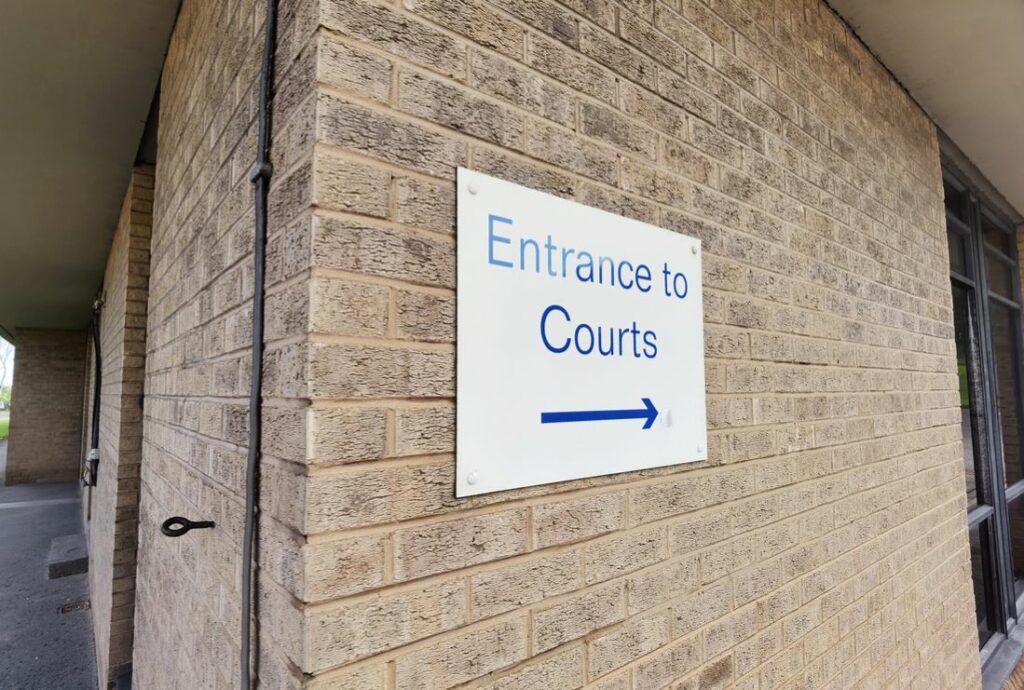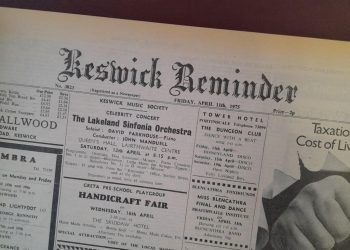
A Bassenthwaite businessman has been jailed after he caused a pensioner to lose £60,000.
Adam Kirkbride, 32, siphoned off the victim’s investment into his residential housing development company.
The company planned to buy land for a proposed housing development in Heywood, Greater Manchester.
Kirkbride was bankrupt at the time, meaning he was not allowed to act in the management of a company.
Kirkbride also breached a 12-year director ban by managing three companies while disqualified.
At Newcastle Crown Court, he admitted fraud disregarding a director disqualification and breaching a bankruptcy order and has been jailed for four years.
Kirkbride, of Bassenthwaite, near Keswick, was also further banned as a director until April 2036.
Kirkbride was managing three companies at the time, something he was prohibited from doing as he had been declared bankrupt.
Julie Barnes, chief investigator at the Insolvency Service, said: “The offences committed by Adam Kirkbride involved deceit, dishonesty, and deliberate concealment of his status as someone prohibited from acting in the management of a company.
“Kirkbride was motivated purely by personal gain and his fraudulent behaviour involved the abuse of power, trust and responsibility.
“His actions caused serious financial losses and he now has the chance to reflect on his criminal behaviour from behind bars.”
Kirkbride was declared bankrupt in November 2012 while he was director of six different companies.
One of the companies, Kirkbride Group (Cumbria) Ltd was the parent company of a group of companies which were marketed as a property and construction services business that operated throughout the UK.
The parent company had a subsidiary company, Kirkbride Homes (NW) Limited which in turn had the subsidiary of Kirkbride Homes (NW) I Limited, established to develop residential housing sites throughout the North-West of England and North Wales.
Kirkbride continued to manage these companies despite his bankruptcy order which prohibited him from acting in the management of a company.
One of Kirkbride’s investors was convinced to invest £60,000 in September 2013 with money drawn down from his pension, believing his money was secure and would be recoverable if the proposed housing development did not go ahead as planned.
However, Kirkbride used all the money within just three weeks on bills and loan repayments despite knowing that the money had been invested on the condition that it could not be used until at least £2 million in total investments had been reached.
Kirkbride’s actions resulted in the victim having to work four years longer than he intended to and retiring with a reduced income.
Kirkbride Group (Cumbria) Ltd, Kirkbride Homes (NW) Limited and Kirkbride Homes (NW) I Limited were dissolved between December 2014 and August 2016, with other investors Kirkbride had persuaded to financially support his businesses losing £400,000.
Kirkbride was first disqualified as a director for 12 years in August 2017 after Insolvency Service investigations revealed he had acted in the management of the companies while he was an undischarged bankrupt.
The following year, Kirkbride first breached his directorship ban when he acted in the management of APK Construction Services UK Limited between September 2018 and December 2020.
He also acted in the management of APK Holdings (Cumbria) Ltd and Able Skip Hire Limited without the permission of the court.
More than £500,000 was owed to people who Kirkbride purchased various other businesses from in 2019 and 2020 through two of these companies. Additionally, invoices in excess of a combined £100,000 were not paid by Kirkbride when he was running these companies while disqualified.
Kirkbride pleaded guilty to fraud against the person who invested £60,000, acting in the management of Kirkbride Group (Cumbria) Ltd, Kirkbride Homes (NW) Limited and Kirkbride Homes (NW) I Limited while bankrupt and to acting in the management of APK Construction Services UK Limited, APK Holdings (Cumbria) Ltd and Able Skip Hire Limited while disqualified as a director.








